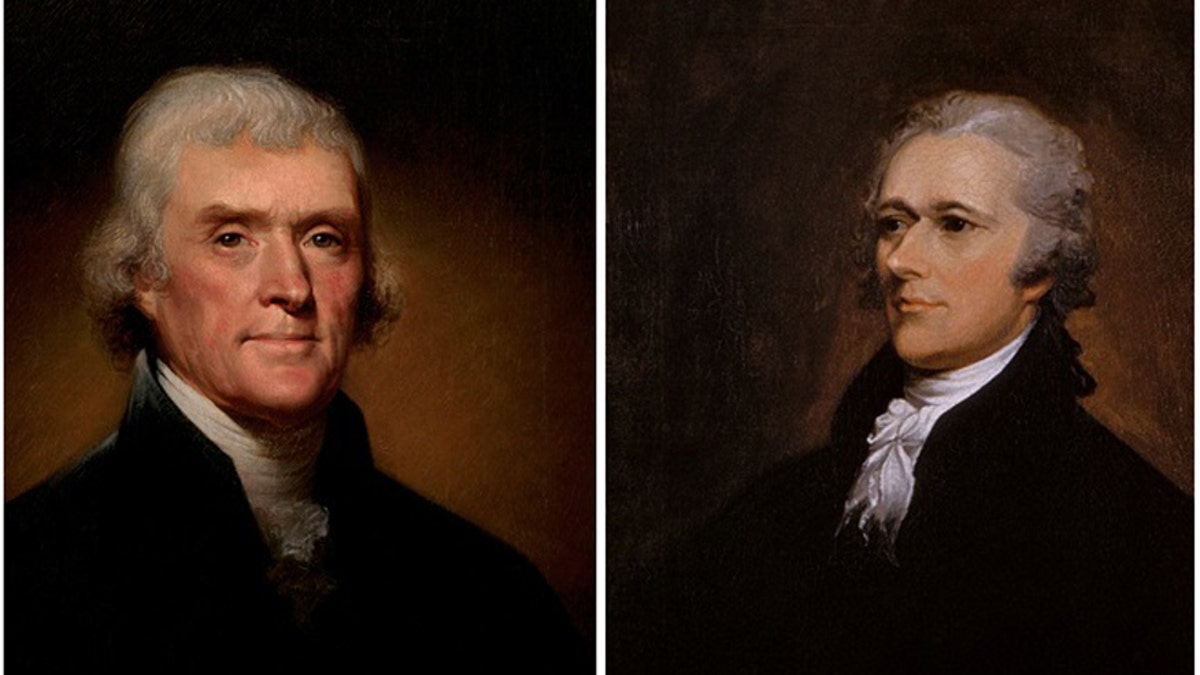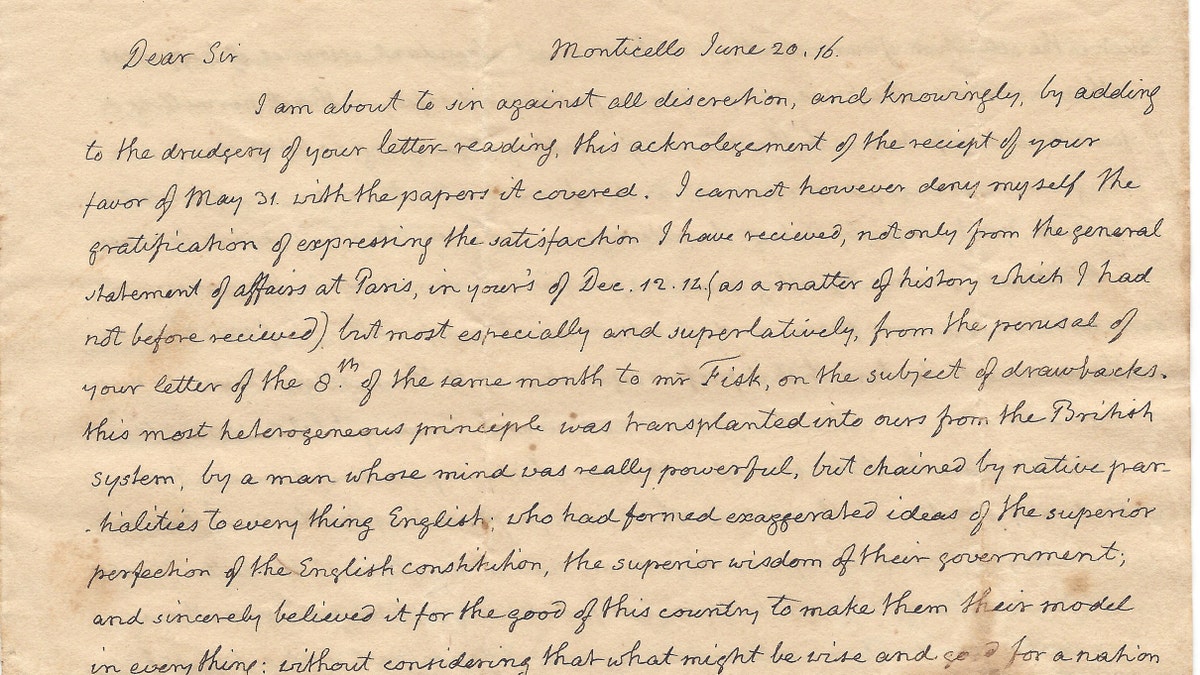
A letter penned by Thomas Jefferson, left, in 1816, laying out his differences with Alexander Hamilton, right, has a $375,000 price tag.
Alexander Hamilton has never been so popular, with a smash Broadway musical about his life as the youngest of the nation's Founding Fathers.
But the man on the $10 bill did not have a fan in the man on the nickel.
A newly surfaced letter from Thomas Jefferson offers a scathing critique of the financial genius and father of the U.S. monetary system, calling him an anglophile whose powerful mind was “chained by native partialities to every thing English.”

A photo of the 1816 Jefferson letter, which was unveiled Tuesday by The Raab Collection. (The Raab Collection)
Jefferson’s four-page letter -- which is now selling for $375,000 --
slams Hamilton's vision for America and suggests that the parts of the nation that agree with Hamilton should secede.
The letter -- penned on June 20, 1816 -- was sent to a Jefferson contemporary who was a confidante of three U.S. presidents and was penned a decade after Hamilton was killed in a duel with his life-long rival, Aaron Burr. Hamilton had backed Jefferson over Burr for president in 1800.
Hamilton and Jefferson long sparred over the role of the federal government -- and the musical hit, "Hamilton," brings the feud to life in a rap battle between the two men on stage. Hamilton favored more federal power, whereas Jefferson favored states' rights.
In the letter, Jefferson writes that Hamilton's mind "was really powerful, but chained by native partialities to every thing English; who… sincerely believed it for the good of this country to make them their model in every thing; without considering that what might be wise and good for a nation essentially commercial, and entangled in complicated intercourse with numerous and powerful neighbors, might not be so for one essentially agricultural, and insulated by nature from the abusive governments of the old world…"
"You have fairly stated the alternatives between which we are to choose: 1. licentious commerce and gambling speculations for a few, with eternal war for the many; or, 2. restricted commerce, peace, and steady occupations for all," Jefferson writes to his confidante.
"If any State in the Union will declare that it prefers separation with the first alternative, to a continuance in union without it, I have no hesitation in saying, ‘Let us separate,’" he wrote.
The young Hamilton had differences with every other Founding Father -- political strife the modern-day musical explores with a hip-hop narrative and colorful cast of characters.
Born out of wedlock in the Caribbean and deserted by his father, Hamilton made his way to New York City at 17. The hard-working, fiercely ambitious Hamilton became General Washington's aide de camp during the Revolutionary War at just 22. By 34, he was the country's first Secretary of the Treasury.
A 700-page biography of Hamilton -- written by Ron Chernow in 2004 and the inspiration for the musical -- portrays the young revolutionary as one of the most influential immigrants in the country's history.
“There are few more iconic people in American history than Thomas Jefferson and Alexander Hamilton, and their relationship and visions represented distinct paths that America could take,” said Nathan Raab of The Raab Collection, the dealer that unveiled the letter Tuesday and offered it for sale.
“In many ways, this letter is the great American debate, and it is remarkable that it survived in the hands of the family for so many years," Raab said.

